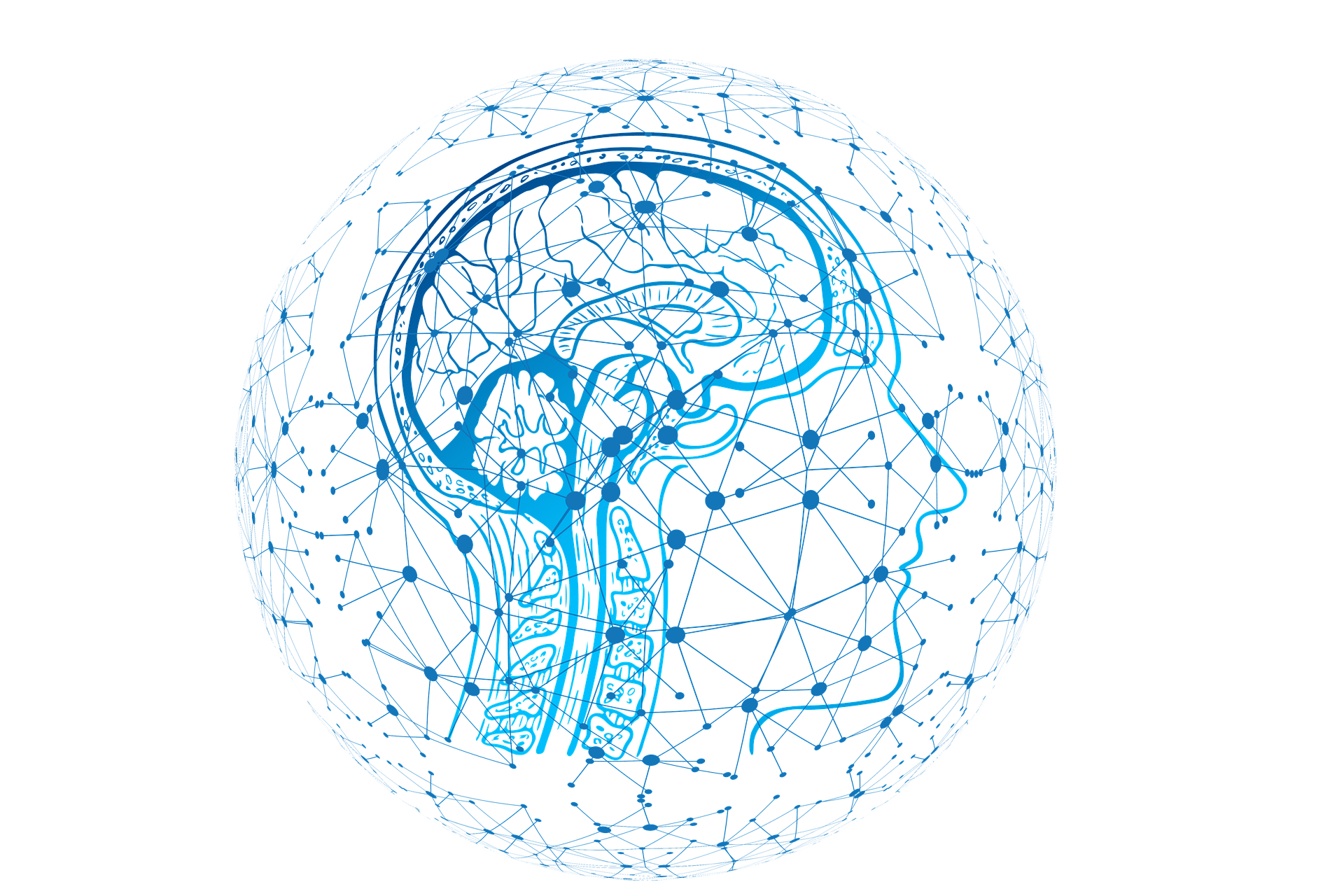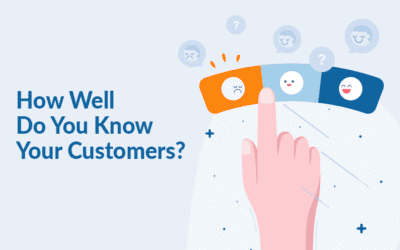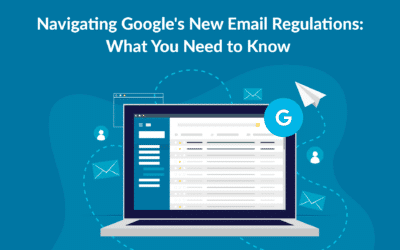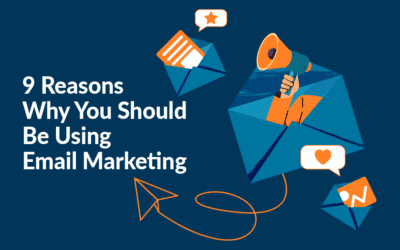Artificial Intelligence – It’s the stuff of science fiction, right?
In a world of conspiracy theories, with news reports about AIs developing their own unique language, and blockbuster movies detailing in great and ever more explosive depth the perils of AIs taking over the world, it would be easy to contemplate slipping on your army surplus combat fatigues, picking up a heavy monkey wrench, and going seriously “Luddite” on this new technology.
You’d be doing humanity a big favour after all, wouldn’t you? (And probably look “totally bitchen” whilst doing so…)
In your most fevered of dreams perhaps.
The reality is that you’d be misunderstanding the huge benefits that AI offers individual businesses and the world of commerce in general.
The words “paradigm changing” are frequently wheeled out to laud the latest commercial new-kid-on-the-block. So much so that nowadays they are more often than not greeted with the somewhat cynical raised eyebrow of tired hyperbole.
Fair enough, we’re not going to fall into that trap, and we won’t use those words here, no matter what the temptation.
Instead, we will take a dive into what is happening right now with AI, glimpse what is coming down the pike at us, and consider what AI offers us in terms of changing our way of doing business for the better.
Forever.
So, what is AI?
We’ll save you a trip to Wikipedia, this is how they frame the concept:
‘In computer science, artificial intelligence (AI), sometimes called machine intelligence, is intelligence demonstrated by machines, in contrast to the natural intelligence displayed by humans. Leading AI textbooks define the field as the study of “intelligent agents“: any device that perceives its environment and takes actions that maximize its chance of successfully achieving its goals.[1] Colloquially, the term “artificial intelligence” is often used to describe machines (or computers) that mimic “cognitive” functions that humans associate with the human mind, such as “learning” and “problem solving”.’
For our purposes then, AI relates to hardware, and the associated software, that is able to “think” for itself, independent of a human guiding input prompting them to take an action – and by this, we mean a human individual pressing “go” in order for an action to be taken.
Human actions and inputs will cause the AI to make decisions and take actions, but the AI will not require a human to “approve” these decisions or actions on a case by case basis.
These decisions and actions are taken autonomously by the AI in response to the information it encounters and in line with its programmed parameters.
And in our daily life we encounter AI much more frequently than we might imagine.
(No, it’s not “Skynet” of the “Terminator” universe).
But it is, for instance;
- Digital assistants such as Apple’s Siri, Amazon’s Alexa and Microsoft’s Cortana.
- It is autonomously driving and parking vehicles.
- It is software that attempts to track “undesirable” or dangerous content on Social Media.
- It is IBM Watson – the AI that came to the attention of the world by defeating two legendary human champions on the TV quiz show “Jeopardy!” in 2011, that is now being used to great positive effect in the healthcare, teaching and meteorological fields amongst many others.
- It is Google’s DeepMind team creating an AI that achieved the perceived impossible task of defeating a Grandmaster of Go! ,the exponentially more complex game than chess.
- It is the latest models of iRobot Roomba vacuums that scan the area and layout of a room, identifying obstacles, and then plotting and remembering the optimum way to clean that area.
- It is the Machine Learning (ML) and AI that Uber has developed and deployed to optimise pick-up and drop-off points, and even make personally relevant recommendations using its UberEATS delivery.
- It is Spotify’s “Discover Weekly” playlist, created using deep learning to present you with a playlist that you are likely to enjoy.
- It is Brain.fm, that uses AI to create unique, purpose-built and composed music designed to steer you into a desired mental state. Their aim being, as they describe on their website “to create music that helps you do what you need to do.”
- It is, annoyingly for some, the Vehicle Recognition Technology that uses computer vision AI to both optimise integrated traffic systems and for law-enforcement purposes.
- It is Facebook using AI in a wide variety of ways, from such relatively straightforward things as facial recognition to suggest who to tag in your pictures, to more complex deployments personalising your feed with posts and advertising content it perceives to be of interest for you (and their advertisers).
And touching on the world of email marketing, it is such things as Gmail’s SPAM filters, that use AI to continuously learn from a variety of signals such as message metadata or the wording of a mail to filter out undesirable content.

Okay, “paradigm changing” isn’t hyperbole then…
No, not really.
The reality of the world that we live in today is that AI is overwhelmingly prevalent – ubiquitous even – in all aspects of our daily life. Inevitably it will only continue becoming even more so.
As enterprises, then, it is vital that we take the time to understand and explore both the benefits and risks that AI presents us with. Both in terms of its efficacy for us commercially, and in how we are perceived in our deployment and use of AI in our businesses.
Given the recent reputational minefield to technology-using businesses that debacles such as Cambridge Analytica and Facebook have precipitated, we simply cannot ignore the fact that reputation management is a key aspect of how we deploy AI commercially.
It is up to us to demystify and reassure, and it is up to us to implement and optimise our AI transparently and honestly.
What is the future for AI and businesses?
It would be not too much of an exaggeration to equate the potential offered to business by AI as being a new “Industrial Revolution”.
As DeepMind put it, “artificial intelligence could be one of humanity’s most useful inventions”, for instance with their application of AI, in partnership with Moorfields Eye Hospital in the UK, having found faster ways of identifying common eye diseases from routine eye scans.
Beyond that, at Google, DeepMind AI has identified and enabled the ways and means to optimise energy usage at Google data centres, saving 30% of the energy needed to supply and cool their servers, significantly reducing their energy usage and consequent CO2 emissions.
AI transformation is already positively impacting businesses across all areas of their enterprises. From content generation to sales and marketing and customer service, to finance, accounting, R&D, and IT, it is driving intelligent decision making and process optimisations, and it is radically changing how we as businesses identify, target, engage and motivate our audiences.
AI-driven automation and data analytics are coming together and affording businesses, on its most fundamental level of application, the opportunity to provide audiences with increasingly relevant content.
But this is the tip of the enterprise AI iceberg, because it is even going so far as being able to predict, as Amazon AI is doing with 90% accuracy, what and when a customer is likely to purchase, enabling the preparation of the order and supply chain well enough ahead of time to prevent delivery backlogs.
Both as individuals and collectively, the exponential connectivity of humanity and the machines we increasingly rely on is creating a tsunami of data. Data we will need AI in order to process and render useful.
This is all a bit “Brave New World”… isn’t it?
Whilst it cannot be ignored that AI is being weaponised, it is also true that this has forever been the case with humanity and technology, regardless of the complexity of we have created, be it the very first flint hatchet head knapped by Neanderthal man, to the development of autonomous weapons systems by Homo Sapiens and our associated AI.
WE, however, are not creating swords here – WE are in the business of forging ploughshares. And we are all about using AI to the best of its potential in order so to do.
The reality is that currently many businesses lack the appropriately robust digital architecture and organisational structure to deploy, implement and utilise AI to its greatest advantage. It is arguable that this is driven by factors as diverse as simple ignorance and even a suspicion of the new, to a willingness to engage being hampered by a basic lack of understanding of how AI can be applied appropriately across a business.
This is where we come to the nub of this article.
It is this last factor that we want to address together with you at MarketingPlatform – what is possible with AI in marketing, and how we at MarketingPlatform can help you.
First of all, though, we needed you to understand that AI is a fact of life for us all, now and increasingly in the future. It is not a case of it will have an impact on how we do business, it is ALREADY doing so.
We therefore have an opportunity to embrace its usefulness and potential, or risk standing on the side-lines looking increasingly confused, and worse than that, increasingly impoverished.
In a follow-up article we will dive more deeply into the specifics of the most relevant areas AI can be applied in optimising and exponentially enhancing your marketing.
But first of all, against a backdrop of potentially mixed emotions on the subject, it was important to set the stage, and look at AI for what it is in reality – a tool.
A really brilliant tool.
It is completely up to us how we chose to use it.
Try MarketingPlatform for free for 14 days
The trial period is free, completely non-binding and expires after 14 days if you do not wish to continue.
When you sign up, you will also receive our educational flow via a series of emails along with our newsletter with regular updates.




